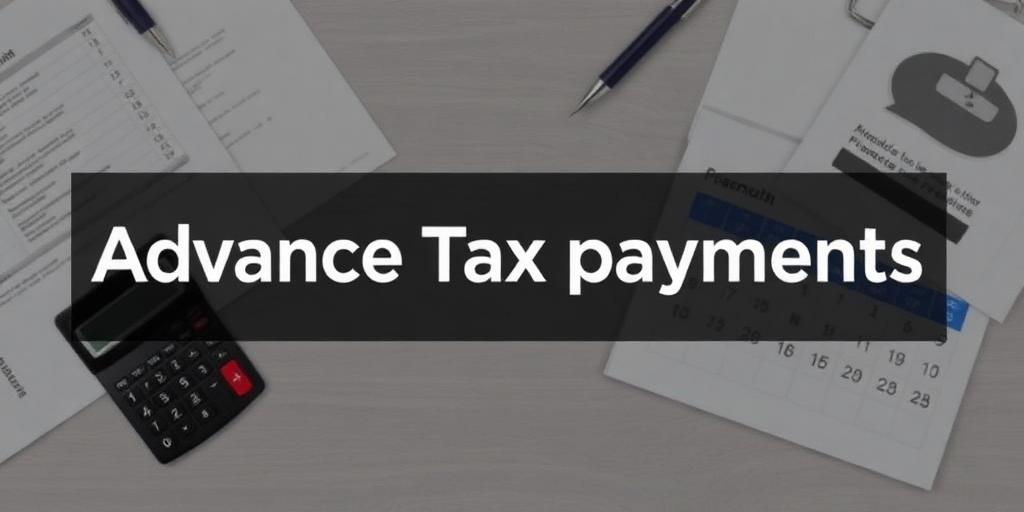Advance Tax Payments: A Comprehensive Guide
Navigating the complexities of tax payments can be daunting, especially when it comes to advance tax. This article provides a detailed overview of advance tax payments, clarifying who is required to pay, how to calculate the amount, and the deadlines to adhere to.
What is Advance Tax?
Advance tax is the income tax payable in advance instead of a lump-sum payment at the end of the financial year. It applies to individuals and entities whose estimated tax liability for the year, after considering tax deducted at source (TDS), exceeds a specified threshold.
Who is Required to Pay Advance Tax?
The obligation to pay advance tax generally applies to:
- Salaried Individuals with Additional Income: If your income from sources other than salary (e.g., interest, dividends, capital gains, rental income) exceeds ₹10,000 and your total tax liability after TDS exceeds ₹10,000, you are liable to pay advance tax.
- Self-Employed Professionals: Doctors, lawyers, consultants, and other professionals whose income is not subject to TDS are required to pay advance tax if their total tax liability surpasses ₹10,000.
- Businesses: Companies, partnerships, and sole proprietorships are also required to pay advance tax if their estimated tax liability exceeds the threshold.
Exemption: Senior citizens (60 years or older) who do not have income from business or profession are exempt from paying advance tax.
Calculating Advance Tax Liability
Estimating your current year's income is crucial for calculating advance tax liability. Consider these steps:
- Estimate Total Income: Include income from all sources, such as salary, business profits, capital gains, rental income, and interest.
- Deduct Applicable Exemptions and Deductions: Claim deductions under sections like 80C, 80D, 80G, etc., to reduce your taxable income.
- Calculate Tax Liability: Apply the relevant income tax slab rates to your estimated taxable income.
- Subtract TDS: Deduct the amount of tax already deducted at source (TDS) from your estimated tax liability.
- Determine Advance Tax Payable: If the remaining tax liability exceeds ₹10,000, this is the amount you need to pay as advance tax.
Advance Tax Payment Schedule
The advance tax payment schedule for individuals and businesses is as follows:
- 15th June: Up to 15% of the advance tax liability
- 15th September: Up to 45% of the advance tax liability
- 15th December: Up to 75% of the advance tax liability
- 15th March: 100% of the advance tax liability
If you fail to pay advance tax or pay less than the required amount by the specified due dates, you may be liable to pay interest under Sections 234B and 234C of the Income Tax Act.
How to Pay Advance Tax
Advance tax can be paid online through the e-payment portal of the Income Tax Department or offline through designated banks. Ensure you have the necessary details such as your PAN, assessment year, and the correct challan for advance tax payment (Challan 280).
Conclusion
Understanding and complying with advance tax payment requirements is essential for all taxpayers. By accurately estimating your income, claiming applicable deductions, and adhering to the payment schedule, you can avoid penalties and ensure a smooth tax compliance process.









